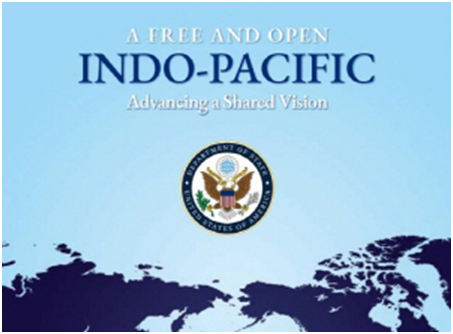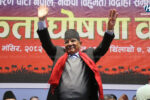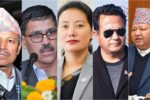KATHMANDU: The U.S. Department of State has released a progress report on the implementation of the U.S. whole-of-government strategy for the Indo-Pacific region.
The report, released on the occasion of the 2019 Indo-Pacific Business Forum and the East Asia Summit in Bangkok, Thailand, describes how the U.S. government works with allies and partners to implement our vision for a free and open Indo-Pacific region.
‘A Free and Open Indo-Pacific: Advancing a Shared Vision’ details two years of diplomatic, economic, governance, and security initiatives that show the United States’ continuing commitment to the Indo-Pacific and how the US has strengthened people-to-people and bilateral ties, according to the report.
Authoritarian revisionist powers seek to advance their parochial interests at others’ expense.
The report also highlights U.S. resources directed to the region with support from the United States Congress, and it notes specific steps the US has taken alongside allies and partners to realize its shared vision.
According to the report, the United States especially recognizes and supports the impressive contributions of Indo-Pacific countries to UN peacekeeping missions, with Bangladesh, India, Indonesia, and Nepal accounting for roughly 24 percent of global UN troop contributions.
“Through this and other forms of cooperation, the US is jointly tackling pressing security challenges and fostering a stable and secure future for the Indo-Pacific region and the world,” the report said adding that the Trump administration has invested more than $54 million to enable Indo-Pacific partners to deploy worldwide in support of UN peacekeeping missions.
Stating that the Indo-Pacific nations today face unprecedented challenges to their sovereignty, prosperity, and peace, the U.S. National Security Strategy, released in December 2017, recognizes that the most consequential challenge to U.S. and partner interests is the growing competition between free and repressive visions of the future international order.
“Authoritarian revisionist powers seek to advance their parochial interests at others’ expense,” it added.
At the 2018 Indo-Pacific Business Forum, the United States launched Asia EDGE, a whole-of-government effort to support energy security, catalyze private sector investment in energy markets, and help partners set transparent market-based energy policies.
Meanwhile, the report said that at the November 2019 East Asia Summit, the United States is announcing $68 million, including for a major new regional governance program in the Pacific Islands and free and fair elections in Burma.
“Other Transparency Initiative programs have helped the government of Indonesia improve responsiveness to public complaints, assisted indigenous people displaced by a Chinese-Cambodian hydropower dam, supported public outreach by the Sri Lankan parliament through establishing a new, state-of-the-art media center, and strengthened civil society contributions to legislation in Nepal,” it said.
The International Energy Agency, according to the report, projects that the Indo Pacific region will account for approximately 60 percent of global growth in energy demand by 2040, requiring more than $1 trillion in annual energy infrastructure investment.
“To meet this demand while integrating renewable energy sources, countries need access to abundant, affordable, sustainable, and reliable energy; diverse sources; and safe trade routes,” it said.
Stating that the U.S. resources and technical expertise are an important driver of Indo Pacific energy security, the report adds that in 2018 alone, nearly 30 percent of all U.S. energy exports, totaling $50 billion, went to the Indo-Pacific region.
At the 2018 Indo-Pacific Business Forum, the United States launched Asia EDGE, a whole-of-government effort to support energy security, catalyze private sector investment in energy markets, and help partners set transparent market-based energy policies.
The Asia EDGE and related programs built on longstanding U.S. energy technical assistance in the region has helped increase the capacity for cross-border electricity trade between Bangladesh, Bhutan, India, Nepal, and Sri Lanka, it said.
It said that these programs have mobilized $806 million in public and private investment across 11 renewable energy projects in Indonesia, including developing its power grid and first wind farm, and helped the Indonesian government integrate energy conservation targets into its 20-year electricity general plan.
According to the report, the Asia EDGE worked with regulators to draft Nepal’s Energy Regulatory Commission Act, which facilitates energy sector regulation.
In November 2017, President Trump outlined a vision for a free and open Indo-Pacific in which all countries prosper side by side as sovereign, independent states.
The vision is based on values that have underpinned peace and prosperity in the Indo-Pacific for generations, the report says adding, “Free, fair, and reciprocal trade, open investment environments, good governance, and freedom of the seas are goals shared by all who wish to prosper in a free and open future.”
Since the start of the Trump Administration, as the report suggests, the Department of State and USAID have provided more than $4.5 billion in foreign assistance to the region.
It also said that the Trump Administration and Congress will continue to work together to strengthen the whole-of-government commitment to a free and open Indo-Pacific region.
“For more than 70 years, the United States, along with our allies and partners, has vigorously defended a free and open environment based on principles that support the rights of all nations, large and small. The U.S. resolve to uphold this free and open order is deep-rooted, and has only grown stronger in the face of efforts to undermine it and impose ties of hegemony and dependency in its place,” it said.
The report further said that U.S. engagement across the spectrum of its interests has never been stronger.
“By joining with allies and partners to defend the principles and values that made the Indo-Pacific region thrive, we will ensure the region remains peaceful, prosperous, and secure for decades to come,” it added.









Comment